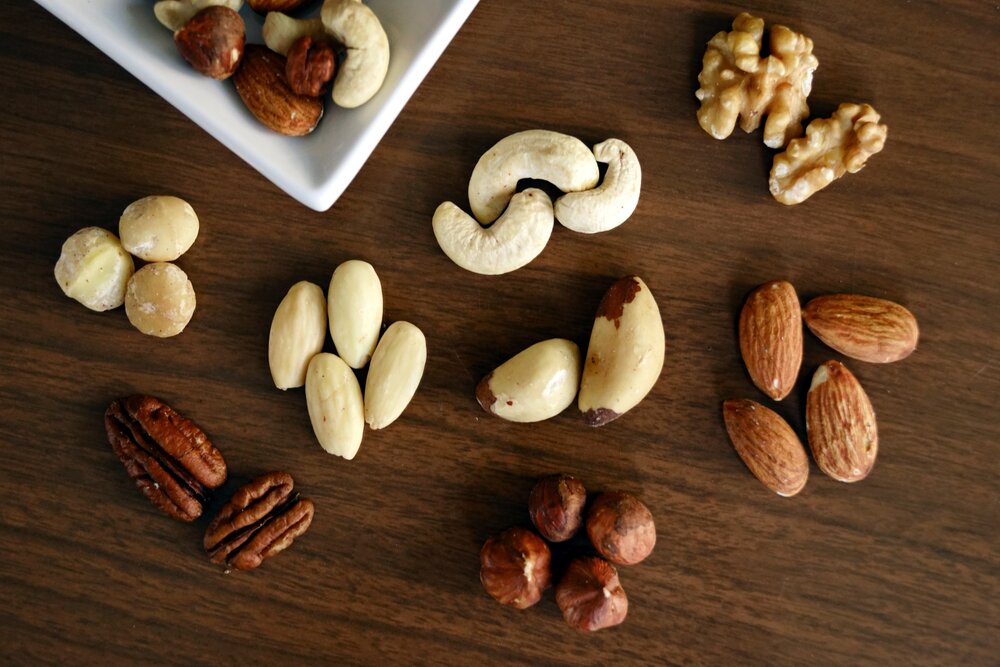
8 Amazing Facts About Nuts
Nuts are a group of edible seeds or fruits that are hard shelled and come from a variety of trees including hazelnuts, walnuts, almonds, pistachios, cashews, pecans and macadamias. These are one of the healthiest foods in the world. They are rich in protein, Vitamin E, fiber, and healthy fats that help you lose weight.
Nuts are also a great source of healthy fats.
This is important for brain function and reducing inflammation in the body. They are often overlooked as sources of essential nutrients, but they should be considered when planning a healthy diet. Some nuts, like almonds and walnuts, have more protein than other nuts, while some nuts like peanuts contain more fat. The nutritional content varies from one nut to another.
10 Interesting Facts About Nuts
1. Good Gut Bacteria in Almonds
Almonds are a great snack for the health-conscious. They are a type of tree nut that is related to peaches, plums, and apricots. They are rich in protein, fiber, and healthy fats and contain a lot of essential nutrients like vitamin E and magnesium. It also helps to produce vitamins for the body like vitamin K, B6, folate and thiamine.
But did you know that almonds also contain good gut bacteria?
There is a type of bacteria in almonds called “Bifidobacterium” which helps with digestion. Bifidobacterium helps to break down the food that we eat so it can be absorbed by the body easier.
2. Macadamia Nuts – The King Of All Nuts
Macadamia nuts are not only delicious, they are also the most expensive nut in the world. The health benefits of macadamia nuts are endless. They are rich in monounsaturated fatty acids, which are great for reducing cholesterol levels and protecting the heart.
The high price is due to a combination of factors.
First, they are not grown in large quantities. Second, they have a short shelf life. Third, they require more labor to harvest than any other nut tree on earth. Fourth, macadamia trees take 12-14 years to mature before producing any fruit – so it can take up to 20 years for a farmer to break even on his or her investment. Fifth, macadamia trees don’t produce like other trees do – one tree can produce as few as 100 nuts per year
3. Chestnuts – The Only Nuts That Contain Vitamin C
Chestnuts are the only nuts that contain vitamin C. They have a high amount of fiber and low calories, making them an excellent snack for weight loss. They are also a rich source of many other nutrients like protein, iron and zinc.
The chestnut tree is native to Asia and Europe, and was introduced to America in 1784. Chestnuts can be found in many dishes, such as chestnut soup, roast chestnuts and even desserts. Chestnuts are a popular food for roasting during the winter holidays in many countries.
4. Cashew have poisonous shells
Cashews are a delicious and nutritious nut, and they are the main ingredient in many dishes. You may be surprised when you hear that cashews have toxic shells.
The outer shell of the cashew is made of a resin known as urushiol which is highly toxic to humans. The shell is not only hard to remove, but it also has a dangerous toxin that can be fatal if ingested. Cashews are often used in many different recipes, which means that people might not always know that they should watch out for the shell when eating them.
5. Pecan – The queen of nuts
Pecan is a type of tree native to North America that produces edible nuts. It is a large tree, growing up to 60 meters (200 feet) tall, with a broad, dense canopy. Pecans grow in clusters on long, spindly branches. The nuts grow inside a hard shell that is covered in a thin layer of sweet, yellowish-green skin.
The most popular variety of pecan is the Southern Pecan (Carya illinoinensis var. texana). The Southern Pecan trees are believed to have originated in the eastern United States and were first cultivated commercially in Louisiana.
6. Walnuts
Walnuts contain the most omega-3 fatty acids.
Walnuts are the best source of omega-3 fatty acids, a type of fat which is necessary for brain health and a healthy heart. Omega-3s are important for heart health and brain function and walnuts are the only nut that contains them in abundance.
One ounce of walnuts contains over five grams of protein and almost four grams of fiber.
7. Pistachios contain the most potassium
Pistachios contain the most potassium out of all the nuts. They have 681 mg per 100 g of pistachios, and are followed by macadamia nuts with a measly 546 mg per 100 g.
Some other health benefits of pistachios include:
- Reduced risk of heart disease
- Lower cholesterol levels
- Improved memory and cognitive function
- Protection from certain cancers
- Healthier skin
8. Brazil nuts – A truly special nut
Brazil nuts are a truly special nut. They are rich in selenium, which is an antioxidant and anti-inflammatory. Brazil nuts also contain the amino acid arginine, which helps produce nitric oxide, which improves blood flow and reduces blood pressure.
The selenium in Brazil nuts can help to reduce the risk of heart disease and cancer by neutralizing free radicals that damage cells and DNA. Brazil nuts are also high in magnesium, potassium, copper and zinc. All these nutrients work together to promote heart health and reduce inflammation.
Regular nut eating is associated with a reduced risk of developing heart disease
Some people are skeptical about the benefits of eating nuts. However, a recent study has found that regular nut eating is associated with a reduced risk of developing heart disease.
The study was conducted by researchers from the University of Cambridge and published in The American Journal of Clinical Nutrition. The researchers analyzed data from three large studies and found that those who ate nuts at least once a week had a 20% lower risk of developing coronary heart disease than those who never or rarely ate them.
Nuts are an excellent source of healthy fats, protein, fiber and vitamins.
The study also found that replacing other sources of protein with nuts did not have any effect on the risk for coronary heart disease. Nuts should be eaten in moderation to avoid overeating, which can lead to weight gain or obesity. They make a great addition to any meal or snack because they provide the body with energy and nutrients that it needs on a daily basis.
Author Bio:
Hi, I’m Rana and I blog at ranasrecipe.com. Connecting with people and cooking are my true passions. Nothing makes me happier than being around a table full of people you love enjoying a delicious meal! With my blog, I found my true calling in creating wonderful recipes so that everyone can enjoy cooking as much as I do! Don’t forget to follow me on my social channels- instagram and pinterest.
Hi, I’m Rana Madanat and I blog at ranasrecipe.com. My passion for food began very early in my life. And after managing a cafe, a granola business and helping other food businesses scale up, I found my true calling in creating wonderful recipes so that everyone can enjoy cooking as much as I do!
Pinterest: https://in.pinterest.com/ranasrecipe/
Insta: https://www.instagram.com/ranasrecipe/





